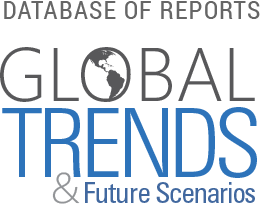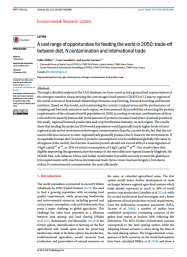
A vast range of opportunities for feeding the world in 2050: trade-off between diet, N contamination and international trade

Abstract
Through a detailed analysis of the FAO database, we have constructed a generalized representation of he nitrogen transfers characterizing the current agro-food system (GRAFS) of 12 macro-regions of the world in terms of functional relationships between crop farming, livestock breeding and human nutrition. Based on this model, and maintaining the current cropland areas and the performance of cropping and livestock systems in each region, we have assessed the possibilities of meeting the protein requirements of the estimated world population in 2050, according to various combinations of three critical drivers namely human diet (total amount of protein consumed and share of animal protein in this total), regional livestock production and crop fertilization intensity, in each region. The results show that feeding the projected 2050 world population would generally imply higher levels of inter-regional trade and of environmental nitrogen contamination than the current levels, but that the scenarios with less recourse to inter-regional trade generally produce less N losses to the environment. If an equitable human diet (in terms of protein consumption) is to be established globally (the same in all regions of the world), the fraction of animal protein should not exceed 40% of a total ingestion of 4 kgN capita−1 yr−1, or 25% of a total consumption of 5 kgN capita−1 yr−1. Our results show that slightly improving the agronomical performance in the most deficient regions (namely Maghreb, the Middle East, sub-Saharan Africa, and India) would make it possible not only to meet the global protein requirements with much less international trade (hence more food sovereignty), but also to reduce N environmental contamination the most efficiently.
- Issues:
- Demography, Urbanization and Migration, Natural Resources
- Region:
- Global
- Year Published:
- 2015
- Authors:
- Gilles Billen, Luis Lassaletta, Josette Garnier
- Institution:
- Environmental Research Letters (Journal) - IOPscience

